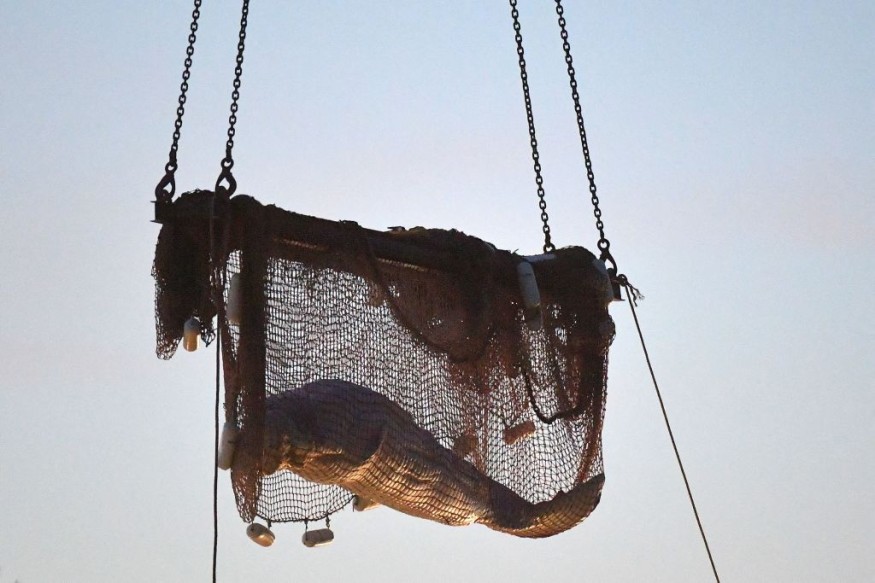In a recent update from French authorities on Tuesday, they announced that a 13-foot Beluga whale have been successfully retrieved upon getting stranded for further a week in France's Seine Riverbank, however the creature perished in transportation returning to the ocean.
Rescued Beluga Whale

Investigators now verified that a beluga whale recovered following getting stranded in France's Seine Riverbed perished halfway on its way to the seas.
Ever since the 2nd of August, the whale has indeed been trapped in the groundwater barrier at St.-Pierre-La-Garenne, which is about 45 miles northwest of Paris. As per the nature conservation organizations looking into the issue, its condition worsened when it rejected nourishment, CNN updated.
The whale, which weighed around 1,800 pounds, has been at least 800 pounds underweight, and when veterinarian checks indicated no gastrointestinal action. the individuals responsible for establishing and maintaining nutrients into the all-white Beluga on Saturday in the expectation of recovering its desire to eat and vigor. On Monday, authorities reported it as conscious although hardly feeding.
As Reuters reported, the rescuing required well over 80 emergency crews and 6 hours to release the creature from said barrier, following which it was transported on a riverboat and subjected to clinical examination.
Experts were disturbed regarding the animal's disconcerting dietary changes therefore decided to euthanize it shortly afterwards. Representatives from the Essonne County Fire Prevention and Emergency Agency announced its demise in a televised address.
While on the 10th of August 2022, paramedics as well as personnel of a specialized rescue and response squad draw up a net to help save a beluga whale that had wandered into France's Seine Canal.
The reason the Beluga traveled higher than or equal to the Seine is unclear. Following getting displaced from its group, an intermediate host, popularly renowned as a killer whale, managed to swim up the Seine in May. Although authorities have failed to coax it back to the ocean, it passed away naturally.
Whale Trapped in Seine River
Florence Ollivet-Courtois, veterinarian at the emergency and retrieve services quipped in an interview with USA Today that during the journey, the specialists noticed a worsening in its condition, especially in its oxygen consumption, and researchers have been apt to observe that the living creature was in anoxia - i.e., inadequately aerated - therefore this living creature was anguish greatly and researchers concluded that it was meaningless to start releasing it and therefore researchers had to move ahead with its assisted suicide.
Vets initially anticipated that the whale might be transferred to Normandy and then placed back into the ocean. As per experts, it weighted roughly 800 kilograms (1,764 pounds) although could perhaps have measured approximately 1,200 kilos (2,646 pounds).
The Arctic and sub-Arctic areas are the beluga's native environment. Whereas the best-known community is situated in the St. Lawrence watershed in Quebec, Canada, the concentration nearest to the French border is in Svalbard, a Norwegian island 1,900 miles from the Seine.
None have ever understood how the beluga got trapped, yet as reported by WWF, ocean temperature depletion in Arctic areas is allowing increased commerce, poaching, as well as various anthropogenic pursuits, impairing the whales' communication skills and make changes. Foraging for nourishment and companions is also getting increasingly challenging for the creature.
Numerous ocean mammalian taxa were detected in France in current history, much further from their natural home. As per France's Pelagis Observation deck, which focuses on the research of marine creatures, potential causes encompass physiological state, maturity, relationship difficulties, as well as ecological circumstances, amongst many more, the Yahoo News recently covered in a report.
© 2026 NatureWorldNews.com All rights reserved. Do not reproduce without permission.





